Author’s Note:
For years, I resisted the idea of a higher power. I believed in effort, discipline, and sheer will—the things that had carried me through war, academia, and various other obstacles. Surrender felt like failure. Stillness felt dangerous. I ran from silence because I knew what waited for me there.
But one winter night, in the middle of a forest, I stopped running. I stopped fighting. And for the first time, I listened.
This is the story of that night.
Introduction
Late in the day, exhausted from an afternoon of teaching my daughter a mixture of physics, algebra, and history, I stepped outside for a walk into the woods. Our property slopes gently downward into a mixed hardwood forest, where a winding stream cuts through the landscape, its banks lined with soft, spongy moss. The air was cool, thick with the damp scent of thawing earth and the sharp, green bite of pine. The last light of February stretched long across the treetops, turning bare branches into dark silhouettes against a bruised-purple sky. A faint breeze stirred the brittle remains of autumn, rustling dry leaves like distant whispers.
As I reached the stream, its quiet babble filled the spaces between birdsong and the occasional creak of shifting trees. The moss along the banks was damp and springy beneath my fingertips, still holding the fading warmth of the sun. I stood still, breathing in the mingling scents of water, bark, and the first stirrings of an early spring.
And standing there, my thoughts lost in the silence, a memory surfaced.
It was the winter of 2018, and it was a heady time for me to be alive. I was 39 years old and had been in the military for 13 years. It had been several years since my last deployment, and I was comfortably settling into the second part of my career—one whose daily routines were distinctly different from the chaotic and rugged tempo of the first. I still couldn’t believe how lucky I was. In just a few years, I had gone from being a Corpsman (medic) with the Marine Corps—patching up bullet wounds and draining abscesses—to being commissioned as an officer, going through flight school, and finding myself among the highest echelons of military strategy and power. Where once I had to ask permission to tie my own shoes, I was now managing millions of dollars of taxpayer money, investing in technologies designed to save lives and win wars. How I made that transition is itself a story worth telling, but not for today.
I was an Aerospace Experimental Psychologist in the U.S. Navy, a uniformed scientist. Unlike clinical psychologists, experimental psychologists don’t diagnose or treat; we apply human psychology to the design of systems, studying human performance and decision-making to create solutions that improve safety, efficiency, and effectiveness. I was part of a small and distinguished group who did something unique and remarkable in the service: we flew airplanes and conducted research. Our job was to help the Department of Defense anticipate future problems and identify solutions through data. We were the bridge between academia and military leaders. We listened to those on the front lines and carried their needs to the Pentagon, influencing decisions that could shape future conflicts.
Several years earlier, I had applied for a scholarship through the U.S. Navy to study advanced concepts in technology development and design. The sudden rise of artificial intelligence, which only a few had begun to grasp in 2018, was poised to reshape modern warfare through intelligent, autonomous systems. While brilliant engineers and computer scientists were spearheading their development, relatively few had the expertise to design them in a way that made sense for human operators. The Navy needed, I argued, a uniformed scientist with specialized knowledge in human-computer interaction and human-machine teaming, and I argued that I was ideally suited for the role. I had nearly a decade of combat experience with the Navy and Marine Corps. I understood how the military procured and developed new systems. And I had a network of operational commanders and leaders I could lean on to shape research agendas that would actually benefit those on the front lines. By some miracle, the Navy agreed with my argument, and I was given three years of orders to attend school full-time to earn my PhD in Human-Computer Interaction at Indiana University, a major research institution with a stellar reputation and top-notch facilities.
So, in March of 2016, my family and I left the white sand beaches of Perdido Key in Pensacola, Florida, and headed north to the hilly woodlands of southern Indiana.
A Fragile Balance
Although it sounds romantic in hindsight, my PhD years were among the darkest and most stressful of my life. The university made no special accommodations for me. The same requirements applied to me as they did to my peers, but I had to complete them in half the time. A six- or seven-year program had to be compressed into three. That meant a harrowing schedule with razor-thin margins for error.
I had to take certain classes in a precise order to align with prerequisites while simultaneously launching research for what would become my dissertation. I had to teach undergraduates while managing my own workload. I had to pass my comprehensive exams on the first attempt at precisely the right time—or I wouldn’t be allowed to advance. I had to publish in top-tier academic journals, a feat that required equal parts skill and luck (peer-reviewed literature is a brutal world of long editorial cycles, competitive fiefdoms, and academic politics). I also had to present at conferences, competing for acceptance into exclusive spaces where reputations were made and broken. If I tripped up at any point—if I failed an exam, missed a publication deadline, or lost a conference bid—the entire gamble would collapse. I would have to return to the fleet without a degree, and my career would be over.
Yet, as consuming as the academic pressure was, something deeper lurked beneath it.
The Shadows That Followed
There were moments—often when playing with my children, watching their happy, unburdened faces—when I would suddenly see something else. Horrible, disturbing memories would surface with no warning. I would suddenly see sharp, vivid flashes of violence, tragedy, and suffering. I would see faces. I would hear voices. I would remember the feelings in great detail. I wouldn’t just remember them; I would relive them. My mind would reconstruct past events, twisting them into alternate scenarios, always more gruesome, always more tragic, and my body would respond as if I were experiencing them anew. My heart would race. I would feel a sense of dread or panic. Often I would sweat, sometimes profusely enough that others would notice and comment. A single memory could derail an entire day. I had no control over when or why it happened.
Yet, whenever I was tempted to ask for help, I told myself I had nothing to complain about. Unlike some of my fellow veterans, I had both eyes and all my limbs.
Unlike some of my teammates, I could still dress myself and remember my own name.
Unlike some of my friends, I was still breathing.
What did I have to complain about?
So rather than seeking help, I did what came naturally to someone raised in a New England household of Irish descent: I drank.
By 2018, I had developed a daily habit of drinking to intoxication, with periodic blackouts, but I convinced myself I wasn’t like those people. I wasn’t drinking and driving. I wasn’t causing trouble. I drank at home, alone, which I used as evidence that I didn’t have a “real” problem. If I truly had a drinking problem, how could I still be succeeding in school? How could I have won a competitive grant? How could I still function?
But deep down—on those mornings when I woke up hungover, staring at my reflection with a mix of disgust and pity—I knew. I knew the patterns were getting worse. I knew I was losing control. I told myself I was fine.
I wasn’t. And somewhere inside, I knew the lie wouldn’t hold much longer.
On top of all of this was yet one more stressor: a fixer-upper of a house we had bought, which would need to be sold in only three years. It was a beautiful two-story home with cedar plank siding and a sharply pitched roof, perched on the edge of a hill that sloped down into ten acres of dense hardwood forest. The house itself had a rustic charm, but it required constant upkeep—something that should have felt like a labor of love but, in my reality, felt more like an unrelenting burden.
We heated our home with wood, never even turning on the furnace all winter. The opportunity to live out my childhood fantasy of being a real-life lumberjack was, in theory, exhilarating. I cut and split all of our firewood by hand, ensuring we had enough to last through the bitter Indiana winters. This meant that at any given time of year, I was outdoors splitting, stacking, or hauling wood, my hands perpetually lined with calluses and my clothes carrying the deep, resinous scent of oak and hickory.
Processing wood was one of two stress relievers for me at the time. The other was drinking copious amounts of alcohol until the thoughts stopped coming.
The Night the Forest Stood Still
One evening that winter, after dinner, I went out to split wood. I stayed outside for hours, working well past dark. I was exhausted—physically, mentally, emotionally. I was drowning in research data, struggling to make sense of a mountain of information that refused to coalesce into a coherent body of work. I had papers to write, deadlines pressing in, and a growing sense that the whole endeavor was teetering on the edge of collapse.
My kids, being kids, were loud and energetic, filling the house with the sounds of life—sounds that I often found unbearable in my frayed and overstretched state. Despite the reality that we lived in relative peace and prosperity—better than most, if I was honest—there was an emptiness in me that no amount of achievement or comfort could seem to fill. I was running on fumes.
Outside, I let my body take over, lifting round after round, swinging the axe, picking up the splits, stacking them neatly into long rows. Again and again, the rhythm repeated. Lift. Swing. Split. Stack.
The air was frigid, but I had stripped down to just a flannel shirt with my sleeves rolled up, my skin flushed with heat from the exertion. At some point, the sun dipped below the horizon, and I realized that twilight had settled in around me. The snow on the ground reflected the fading blue of the sky, and the density of the forest around me created an eerie, dreamlike glow. It was as if I had stepped inside a sapphire—a world bathed in cold, quiet light.
Then, it began to snow.
At first, I didn’t notice. I was too lost in motion, too preoccupied with keeping myself busy. This was during a time in my life when I actively avoided silence. Stillness was dangerous. If I stopped moving, the thoughts would creep in—unbidden, unwelcome, and sharp-edged with memory. I had learned the hard way that it was far easier to keep moving than to claw my way out of the darkness once it had settled in.
But something was different that night.
For the first time in what felt like years, I felt a presence—something intangible yet unmistakable, as if I were no longer alone. It wasn’t ominous or overwhelming, but quiet, steady. A subtle urging, a gentle awareness pressing at the edges of my consciousness. It felt as though someone was standing beside me, wordlessly encouraging me to stop, to look around, to see.
And I resisted.
I willed myself to keep my head down, to stay locked in the rhythm of work. But the presence remained, patient, unwavering. It was as if the very forest itself was waiting for me to notice it. I could no longer ignore whatever this was. With deliberate effort, I took a deep breath, exhaled, and forced myself to lift my gaze. And in that moment, the world stood still.
The snow fell in tiny, silent flakes, swirling through the beams of moonlight that filtered through the trees. The entire forest glowed, each branch outlined in crystalline frost, each drifting flake catching the light like falling stars. The cold air filled my lungs, sharp and clean.
As I stood still, I became aware of just how quiet the forest truly was. The only sound was that of snowflakes landing on the dried leaves scattered across the forest floor—light, delicate patters, like someone sprinkling salt onto a cutting board. The entire world around me was bathed in blue, an ethereal glow that emanated from the snow, the sky, and the thick canopy of leafless trees. I inhaled deeply, catching the faint scents of damp earth, tree bark, and freshly split red oak. It was only then that I realized—I hadn’t heard a sound in over an hour.
All this time, as I had been swinging the axe, grunting with exertion, trying to outpace my thoughts, this atmosphere had been slowly forming around me. It had been waiting for me.
Then, something within me shifted. For one of the first times in my life, I submitted. I let go of what I was thinking. I let go of what I thought I had to do next. I stopped trying to control the moment and, instead, allowed it to wash over me.
An Encounter
And predictably, I was immediately overwhelmed.
The tears came before I could stop them, a sudden flood of emotion that had no name but carried the weight of years. This was why I had always avoided stillness. This was why I kept myself in constant motion. If I allowed myself to slow down—if I allowed myself to feel—I might drown in it. I had spent a lifetime keeping the floodgates closed. Now, they threatened to burst.
I panicked. Instinct kicked in, and I reached for the axe, eager to busy myself again, eager to run. But something—whether it was a part of myself I had long silenced or something entirely beyond me—urged me to stay. It was a gentle nudge, nothing forceful. A whisper, not a command.
Stay.
I hesitated, my grip tightening around the axe handle. And then, with effort, I willed myself to set it back down. I forced myself to look up again, to take in the scene around me.
I felt like a small child standing at the edge of a pool, fearful of the water but drawn to it all the same. The twilight deepened, casting long shadows through the trees. Snowflakes landed softly on my head and shoulders, a quiet benediction. The forest stood around me—not as an indifferent backdrop, but as something more. It felt ancient, patient. It felt like I was standing among elders, wise and enduring, bearing witness to my struggle, offering their presence in quiet solidarity. And for the first time in longer than I could remember, I felt something akin to communion—an unspoken exchange between myself and the world around me.
I stood perfectly still, my breath visible in the cold air. Inside my head, the question arose naturally, as if it had been waiting for this moment to be asked:
What is my purpose?
Silence.
But it wasn’t an empty silence. It was a listening silence, a presence that neither affirmed nor denied but simply was. And in that moment, I understood—I had asked the wrong question. My question had been inward, self-focused. And in the vastness of this moment, in the presence of something greater than myself, I knew that was not the right perspective.
And so the next question arose, effortlessly, with no hesitation:
What is your purpose?
And the answer came at once. Clear. Unmistakable.
To know you.
Goosebumps rippled across my entire body in wave after wave, from the crown of my head to the soles of my feet. I closed my eyes and let the shapeless color behind my eyelids wash over me, listening to the soft pitter-patter of snow, breathing in the scent of midwinter forest. I cried quietly.
I didn’t understand what it all meant, and for once, I resisted the urge to label the experience or impose meaning onto it. Instead, I simply let it unfold, accepting that, for some unknown reason, I was being carried along by something much greater than myself.
Moments like this have punctuated the loneliest, most isolated seasons of my life—the times when I felt completely separate from the universe. These rare occurrences have offered me glimpses of belonging, a quiet reminder that I am, in some way, connected to something far beyond myself. And over time, they have allowed me to challenge the narratives I once held as absolute truths.
The Illusion of Strength and the Quiet Truth of Surrender
I didn’t get healthy or sober for several more years after this remarkable night, in part because I wrestled with the idea that I wasn’t strong enough to fix my own problems. My arrogance kept me trapped in two equally destructive mindsets—either I dismissed my struggles as illegitimate, berating myself for having them at all, or I viewed them as obstacles to be conquered through sheer will. Every problem was a mountain to climb, and the solution was always the same: work harder.
Admitting powerlessness, surrendering my will, asking for and accepting help—these were unthinkable. My rigid stance toward spirituality, my disdain for the idea of something greater than myself all but ensured that I would remain in misery. And so would the people who loved me—the ones who simply wanted me to be well enough to be part of their lives.
But as life continued to weigh on me, as the darkness pulled me further and further down, it was that twilight moment in the woods that returned to me. A memory I could not dismiss. A quiet, undeniable proof that there was something greater than me.
That moment marked a shift—one I wouldn’t fully understand until much later. It was the beginning of something small but significant: the loosening of my grip on the past, the first steps away from my resentment toward the church and childhood concepts of God. The forest that night had given me something I could not argue against. It had nothing to do with what people said about religion or what they had done in its name. It was an experience, real and personal, that opened a door I hadn’t realized was locked.
And through that opening, everything began to change.
As I write this, years removed from that twilight reverie, life looks very different. Recovery takes many forms, and I have learned—am learning—that it isn’t linear. It doesn’t even always move in one direction. In my case, it often means two steps forward and one step back.
Reflecting on memories like this is painful, not because I am ashamed of my journey, but because of how long it took before I was willing—simply willing—to listen, to accept, to surrender. Even now, that word makes me bristle. Surrender. It still feels too much like defeat. And in the quiet, I can almost hear the voices of those who are no longer here—ghosts of the past urging me: No! Dammit! You’re stronger than that! Fight harder!
But maybe those aren’t the voices of my fallen friends. Maybe they are the voices of my own ego, disguised, pulling me away from whatever presence I felt in that twilight forest so many winters ago.
So this evening, as I walked through the woods and listened to its silence, I stopped for a moment to remember. Standing among the trees, I closed my eyes, stood still, and let myself return to that night. I whispered a silent prayer of gratitude—for where I was then and where I stand now.
The more time I spend in this place, in this mindset of openness and willingness, the more whole I feel.
And to feel whole is all I really want—for today.
If you’ve struggled with the idea of a higher power, what helped (or didn’t help) you find your way?
What does surrender mean to you?
And if you are struggling, please reach out. I don’t know much, but I am willing to listen. You are not alone.
About the Author
Hi, I’m Eric. I write about the long road to healing—the raw, unvarnished truth of recovery, trauma, and the search for meaning after survival. I spent two decades chasing achievement and outrunning my past, only to learn that the hardest battles were the ones within. Today, I find both contentment and adventure in the unconventional life of homeschooling my daughter and writing about the quiet work of rebuilding, the struggle to let go, and the pursuit of something deeper.
This space is for those who have wrestled with themselves, who know what it means to be lost, and who are still searching—whether for peace, purpose, or simply the next step forward. If my words resonate with you, I invite you to subscribe and walk this road with me.





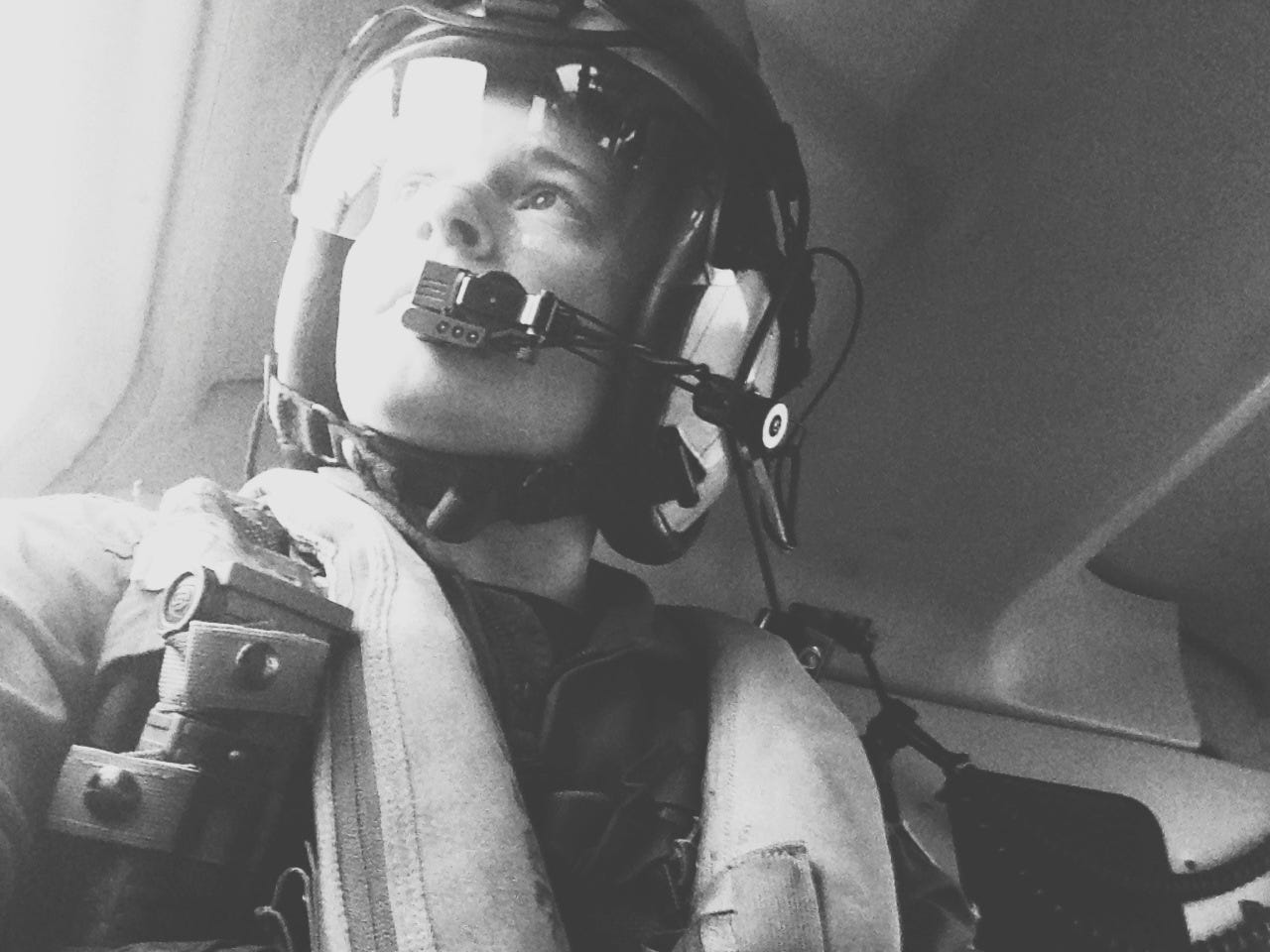
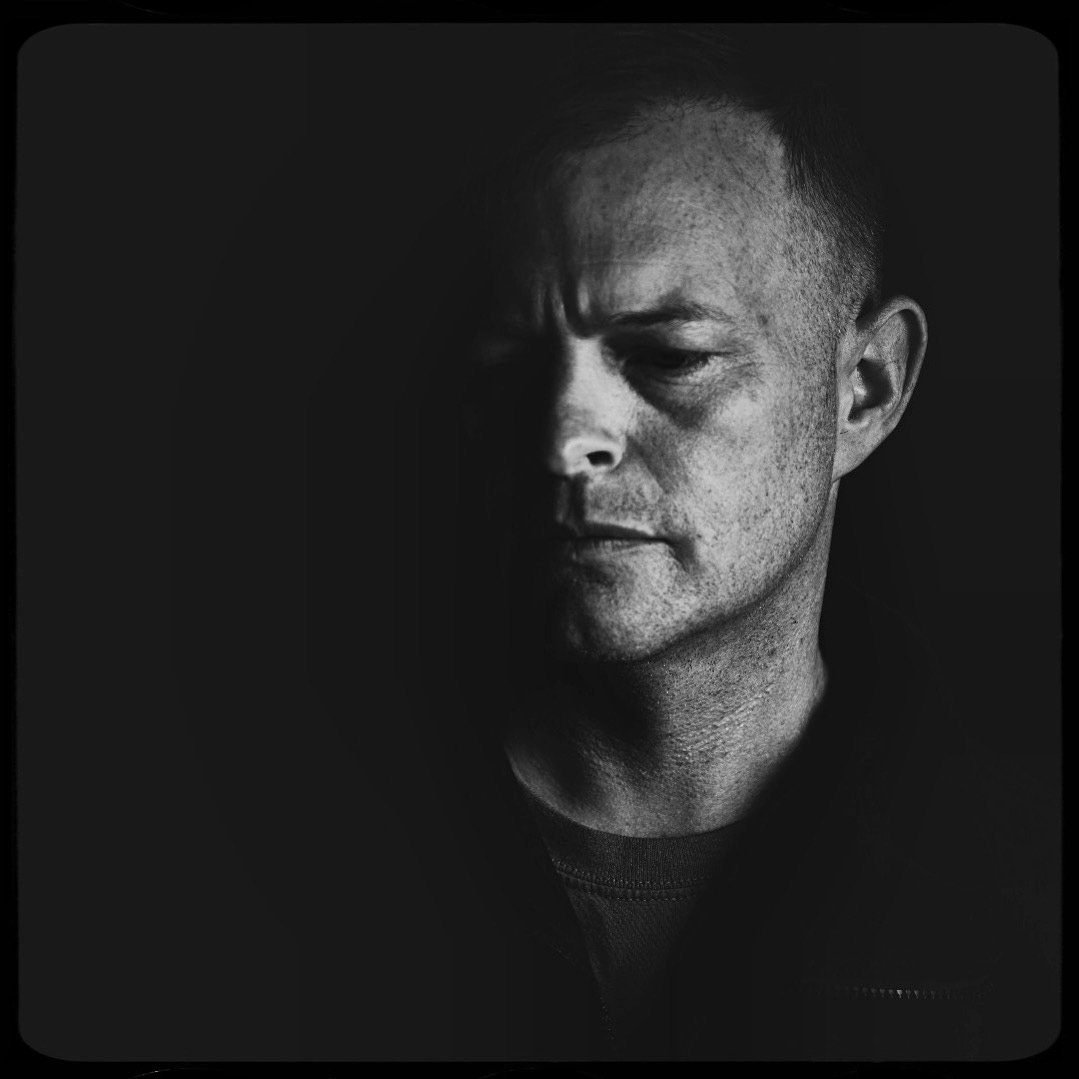
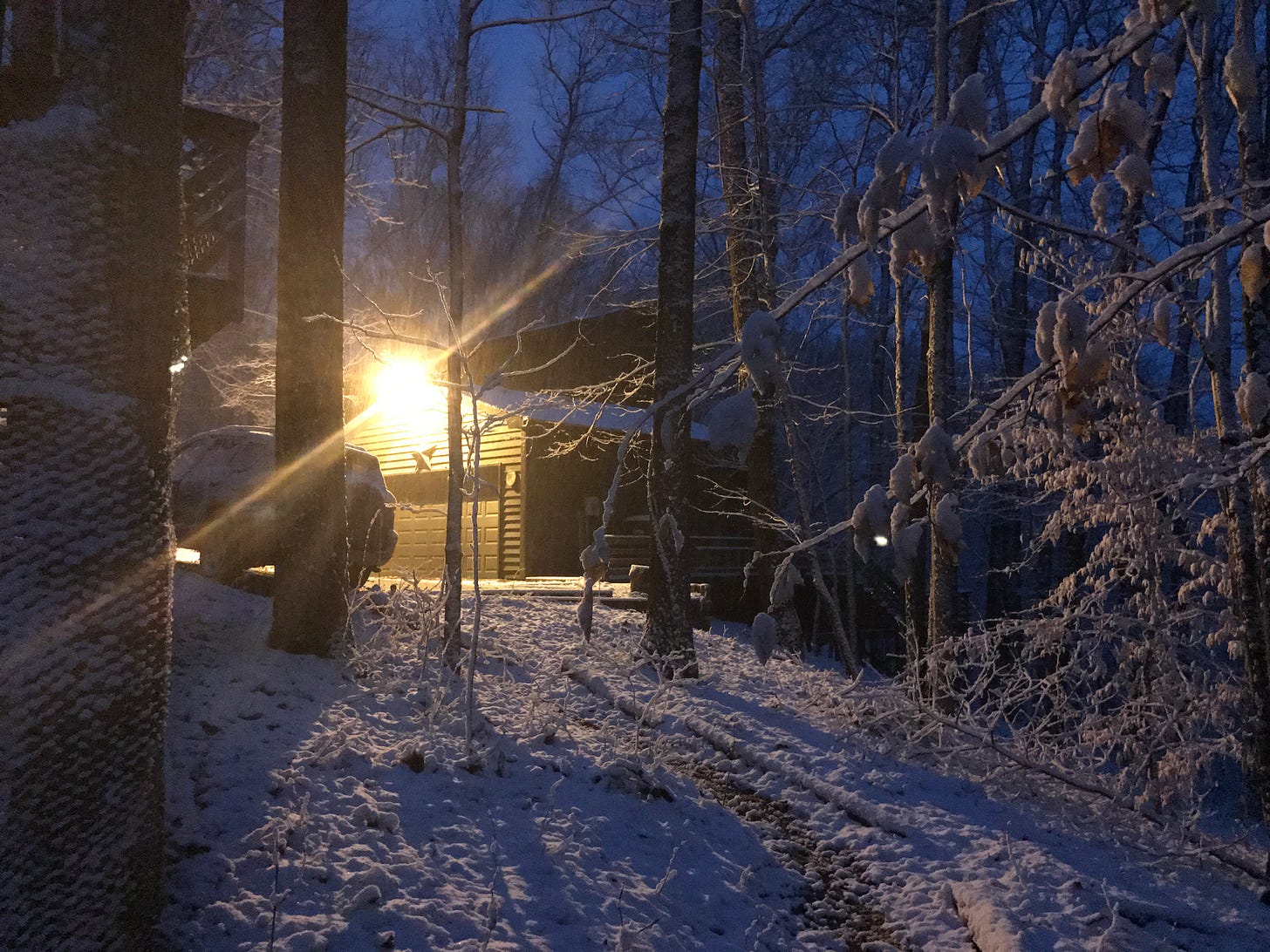
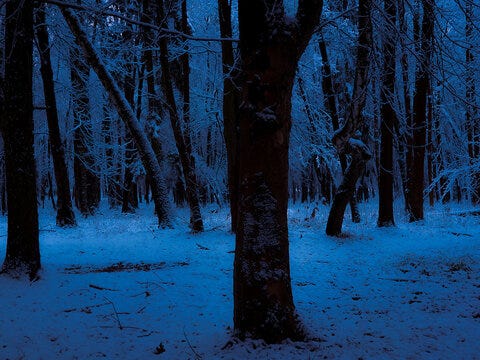
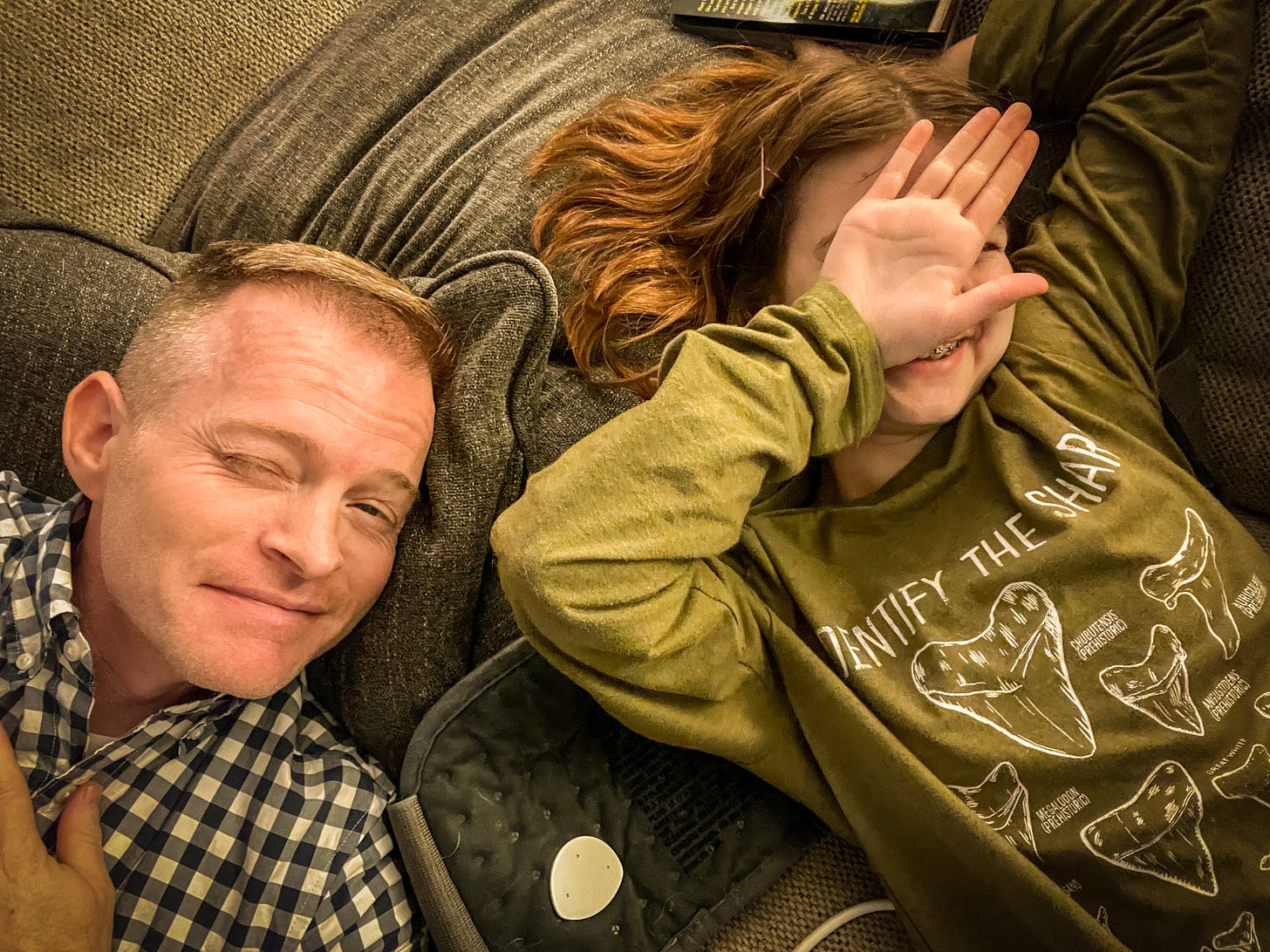
This is incredibly profound. I don't think there's any deeper or more undeniable shakeup than the experience of something like this, especially when that was the last thing you were expecting. I'm sorry for the unspeakably difficult things you've experienced, my friend, and thrilled that you're in a better place today than yesterday.
An engaging, well-written intro story regarding the quiet of the Forrest. We have some things in common - military service, exposure to military explosives trauma, viewpoints on a higher power, quiet times in deep woods and alone with my thoughts (although I was hunting), acquiring/testing AI for military applications/utilities and recovery.
I relate to the childhood viewpoints of religion and my struggles to understand what that meant or how a God (or any higher power for that matter) would help me understand what was the meaning of my life. My life took so many abrupt turns, it added to my confusion. Like you, I started to slowly better understand my purpose after I honestly began my recovery journey and when I started thinking more about helping others.
I look forward to reading more. Thank you!
Rick W.